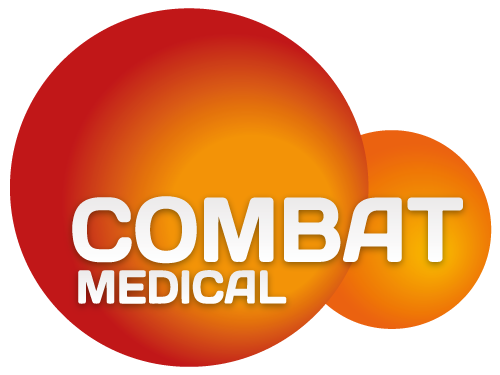Higher intakes of dietary folate – vitamin B9, found mainly in leafy greens such as cabbage or broccoli, wholegrains, pulses and citrus fruit – or folic acid supplements could help decrease the risk of colorectal cancer, according to a new study just published in the American Journal of Nutrition.
Researchers analysed the data from over 70,000 individuals in 51 studies and explored interactions of common genetic variants and dietary folate, folic acid supplement use, and total folate in relation to colorectal cancer risk.
They found that the odds of developing colorectal cancer were reduced by 7% for every 260 micrograms of higher consumption of dietary folate – which is 65% of the daily recommended amount of 400 micrograms. This supports the hypothesis that folate may be effective for colorectal cancer prevention and might influence cancer risk.
They also found that one area of the genome in particular – p25.2 on chromosome 3 – may modify the association of folate supplements with colorectal cancer risk, suggesting the need for more research to identify the genes involved.
*Bouras et al. Genome-wide interaction analysis of folate for colorectal cancer risk. American Journal of Nutrition, 2023, 118(5):881-89
https://ajcn.nutrition.org/article/S0002-9165(23)66108-8/fulltext
Discussion – how might folate help decrease the risk of colorectal cancer?
Colorectal cancer, a malignancy affecting the colon and rectum, is among the most common cancers globally. Folate plays a vital role in DNA synthesis, repair, and methylation. It is a key player in the synthesis of nucleotides, the building blocks of DNA. The body requires folate for cell division and growth, making it particularly important in tissues with rapid cell turnover, such as the lining of the gut.
Folate Deficiency and Cancer Risk
Folate deficiency can lead to DNA damage, chromosomal abnormalities, and impaired DNA repair mechanisms. These effects can potentially lead to the initiation and progression of cancerous growths. In the context of colorectal cancer, folate’s role in maintaining DNA integrity is of paramount importance. Studies have shown that low folate levels are associated with increased risk of colorectal cancer, possibly due to the accumulation of DNA mutations and chromosomal instability.
Folate and DNA Methylation
DNA methylation, a process by which methyl groups are added to the DNA molecule, is crucial for regulating gene expression. Abnormal methylation patterns have been linked to cancer development. Folate is a key donor of methyl groups in the body’s biochemical pathways. Therefore, adequate folate levels are essential for maintaining normal DNA methylation patterns, potentially reducing the risk of malignant transformation in colon cells.
Folate, Homocysteine, and Cancer
Homocysteine, an amino acid in the blood, is influenced by folate levels. High levels of homocysteine have been associated with increased risk of various diseases, including cancer. Folate helps convert homocysteine to methionine, another amino acid, thus potentially reducing its harmful accumulation. This conversion is also important for the production of S-adenosylmethionine (SAMe), a critical methyl donor for DNA methylation.
Epidemiological Evidence
Epidemiological studies have shown an inverse relationship between dietary folate intake and colorectal cancer risk. Populations with higher intake of folate, either through diet or supplementation, tend to have a lower incidence of colorectal cancer. However, these observational studies cannot definitively establish causation, and other lifestyle factors might also contribute to these findings.
Interventional Studies and Folate Supplementation
Randomised controlled trials have attempted to assess the impact of folate supplementation on colorectal cancer risk. The results have been mixed, with some studies showing a protective effect, while others found no significant benefit. The discrepancy may be due to differences in study design, population characteristics, dosage of folate, and the duration of supplementation.
H Kherbek et al. The relationship between folic acid and colorectal cancer; a literature review, 2022
link: https://www.ncbi.nlm.nih.gov/pmc/articles/PMC9287768/
Folate and Genetic Factors
Individual genetic differences in folate metabolism can influence the impact of folate on cancer risk. Variations in genes involved in folate metabolism may affect individual susceptibility to cancer in the context of folate deficiency or supplementation. Personalised nutritional recommendations based on genetic makeup may be more effective in reducing cancer risk.
The Complex Interaction with Alcohol
Alcohol consumption can interfere with folate absorption and metabolism. Heavy alcohol use coupled with low folate intake has been linked to a significantly increased risk of colorectal cancer. This interaction highlights the importance of considering lifestyle factors in assessing cancer risk.
Folate-Rich Diet: A Preventive Strategy
A diet rich in folate is recommended for the general population. Foods high in folate include green leafy vegetables, fruits, legumes, and fortified cereals. Such a diet, combined with other healthy lifestyle choices, could contribute to a lower risk of developing colorectal cancer.
Potential Risks of Excessive Folate Intake
While folate is beneficial, excessive intake, particularly from supplements, may have adverse effects. There is some concern that high levels of folate might stimulate the growth of existing pre-cancerous or cancerous cells, although this hypothesis requires further research.
The Future of Folate Research
Ongoing research is needed to clarify the optimal level of folate intake for cancer prevention. Future studies should consider genetic factors, the role of folate in different stages of cancer development, and the interaction between folate and other dietary and lifestyle factors.
Folate, as part of a balanced diet, appears to play a role in reducing the risk of colorectal cancer. Its functions in DNA synthesis, repair, and methylation are essential for maintaining cellular health and preventing malignant changes. While folate supplementation might benefit certain individuals, it’s crucial to understand its complex interactions with genetic factors and lifestyle choices. A holistic approach that includes a healthy diet, lifestyle modifications, and personalised nutrition may offer the best strategy for reducing colorectal cancer risk.
Folate’s potential in decreasing the risk of colorectal cancer is a promising area of research, highlighting the importance of nutritional factors in cancer prevention. As science advances, more precise guidelines on folate intake and its role in cancer prevention can be expected to emerge.

